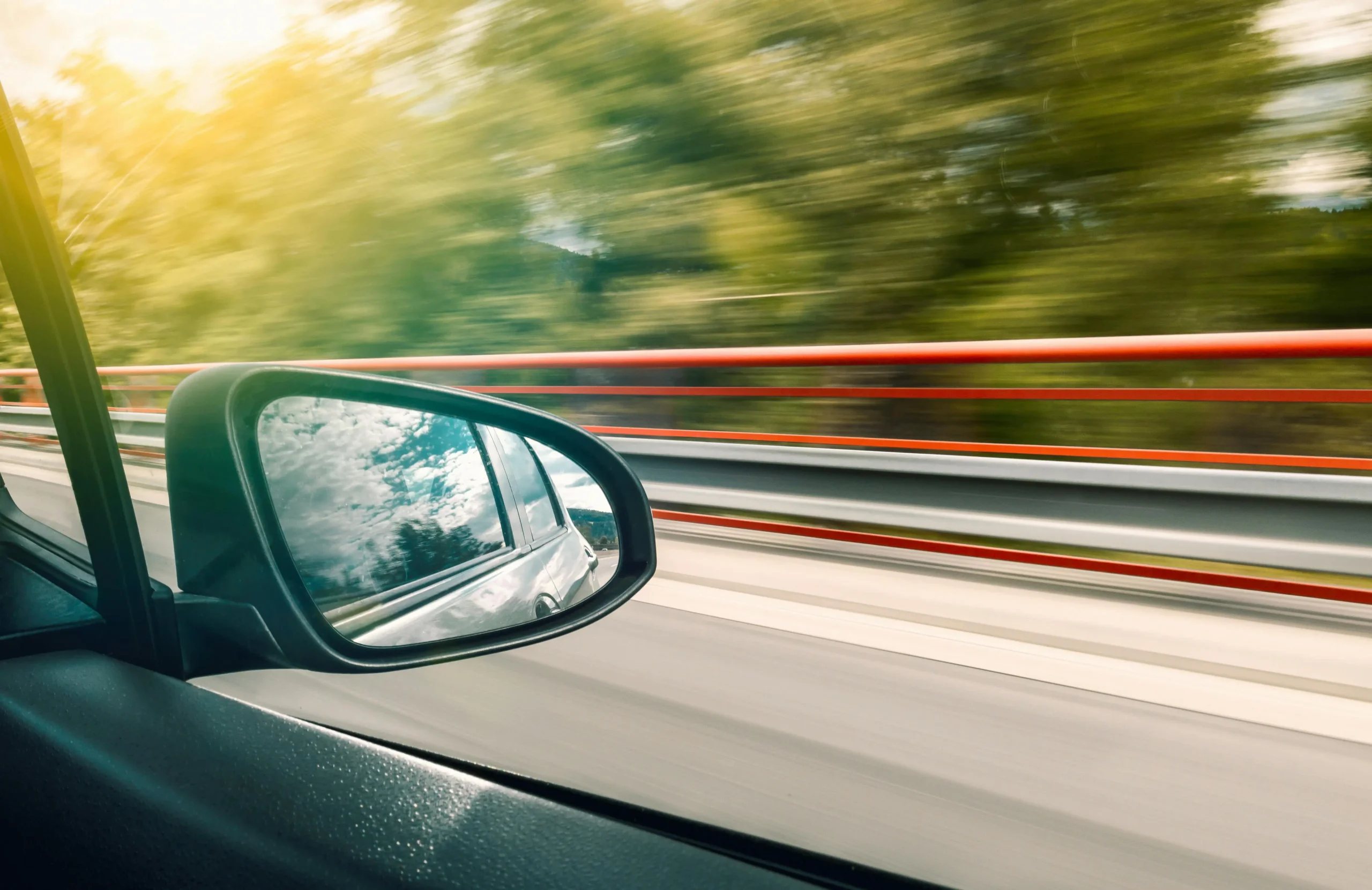As the Thanksgiving holiday nears, a concerning trend known as Blackout Wednesday or “Drinksgiving” is gaining traction in the United States.
This emerging tradition, marked by increased alcohol consumption on the eve of Thanksgiving, is fast becoming a popular yet risky pre-holiday ritual.
What is Blackout Wednesday?
Blackout Wednesday, also known as “Drinksgiving,” is supposedly one of the biggest drinking nights in the United States.
It traces back to the socio-cultural landscape of the United States.
In both suburbs and cities, it’s a widely known holiday.
The term itself, ‘Blackout Wednesday,’ vividly encapsulates the core issue of this event: excessive alcohol consumption leading to memory loss or unconsciousness.
This tradition emerged from a conjunction of factors.
For many, the Wednesday before Thanksgiving is when many students from college return home and reunite with old high school or hometown pals, often at the local bars or gatherings.
The following day, a national holiday, assures minimal obligations, setting the stage for indulgence without immediate consequences.
Notably, certain suburbs around cities like Chicago, including Highwood and Naperville, have seen this trend amplify.
These areas have witnessed a significant rise in bar activity and associated risks.
There have been instances where local bars, recognizing the potential for overconsumption, have removed bar stools to manage the crowd and mitigate risks.
Blackout Wednesday’s growth into a widely recognized event speaks volumes about modern social behaviors and attitudes toward binge drinking.
It highlights a cultural contradiction where a time meant for gratitude and family reunion inadvertently fosters risky behavior that contradicts the holiday’s spirit.
When is Blackout Wednesday?
Blackout Wednesday ensues annually on the Wednesday before Thanksgiving.
This timing is significant, as it falls just before a long holiday weekend in the United States when many people have time off from work or school.
The significance of Blackout Wednesday’s timing cannot be overstated.
Thanksgiving celebrated on the fourth Thursday of November, is a federal holiday that often extends into a four-day weekend for many Americans.
This break allows college students to return home and families to gather, creating a prime time for socializing.
Therefore, Wednesday night becomes an opportune moment for reuniting with friends and family, leading to the tradition of gathering at local bars or hosting parties.
This convergence of free time and the festive mood of the approaching holiday has cemented Blackout Wednesday as a tradition for many.
It’s a night marked by a sense of freedom and celebration, but it also brings with it the risk of overindulgence in alcohol.
All of this seems fun at first, but when an excessive consumption of alcohol is indulged, waking up the next day to eat a Thanksgiving feast surrounded by family may not seem ideal.
What started as a casual get-together among friends has evolved into a widely recognized event, with some establishments even offering special deals or events to capitalize on the increased patronage.
This evolution of Blackout Wednesday reflects broader societal trends and attitudes towards holiday celebrations and social drinking, highlighting both the desire for communal gatherings and the potential risks accompanying such traditions.
The Drinking Culture
The drinking culture surrounding Blackout Wednesday is both robust and mixed, reflecting a broader social acceptance of heavy alcohol consumption as a part of holiday festivities.
This night is often characterized by an upsurge in the consumption of a wide range of alcoholic beverages, with particular preferences varying by region and social group.
Drinks commonly consumed include beer, spirits, and wine, with many opting for more potent shots or mixed drinks to amplify celebration.
The place and setting often influence the choice of beverage.
Bars and taverns might see a rise in the sale of craft beers and specialty cocktails, while house parties might feature homemade concoctions or popular liquor brands.
A notable aspect of the drinking culture on Blackout Wednesday is the development of specific rituals and traditions.
These can range from bar-hopping with friends, engaging in drinking games, to toasting to reunions.
In some communities, there are even informal competitions or challenges related to drinking, which, while intended to be good fun, can sometimes escalate the risk of excessive alcohol consumption.
The social aspect of Blackout Wednesday’s drinking culture is significant.
It’s a night often seen as a rite of passage for young adults, especially college students returning home.
This can lead to a sense of peer pressure to participate in heavy drinking, further ingraining the tradition within certain social circles.
These rituals and behaviors highlight the deeply embedded nature of alcohol in social celebrations.
Still, they also underscore the need for awareness and moderation to prevent the negative consequences that follow with excessive drinking.
The Impact of Blackout Wednesday Thanksgiving
The Blackout Wednesday tradition, while a celebration for many, can have influential consequences that ripple into the Thanksgiving holiday.
The hangover caused by all this heavy drinking can affect not just the individuals who partake but also the family gatherings and the essence of the holiday itself.
One of the immediate consequences is the physical impact on those who drink excessively.
Hangovers, fatigue, and illness can take away from the festive spirit of Thanksgiving, often leading to a diminished ability to participate in family activities or even attend planned gatherings.
This can strain family dynamics, especially when holiday participation and behavior expectations are unmet.
Also, excessive drinking on Blackout Wednesday can lead to exaggerated emotions and impaired judgment, which may carry over into Thanksgiving Day.
This can cause conflicts or uncomfortable situations during family gatherings, potentially disrupting what is known as a traditional time of gratitude and togetherness.
There’s also a broader societal impact to consider, such as increased demands on emergency services and a higher incidence of alcohol-related accidents and incidents.
This not only affects those who partake in Blackout Wednesday but also the wider community.
Given these potential consequences, promoting moderation and responsible drinking during this period is essential.
| Moderation Tips | Responsible Drinking |
|---|---|
| Set a personal limit on drinks | Choose a designated driver |
| Drink slowly, savor each sip | Use public transportation or ride-sharing |
| Drinking water after every other drink | Keep an eye on your drink at all times |
| Eat a good meal before drinking | Respect others’ decisions not to drink |
| Avoid drinking games | Know your alcohol tolerance |
| Stay within your comfort zone | Don’t mix alcohol with medications |
Coping Strategies for Individuals in Recovery
Navigating Blackout Wednesday can be particularly challenging for individuals in recovery from alcohol addiction.
Having coping strategies to maintain sobriety during this time can be really important.
The key is to prioritize recovery while still feeling included in the social aspects of the holiday.
| Coping Strategy | Description |
|---|---|
| Seek Support | Maintain contact with a support network, including friends, family, sponsors, or support groups. |
| Have a Plan | Anticipate scenarios involving alcohol and know how to decline drinks or exit situations. |
| Create New Traditions | Establish new, alcohol-free traditions like hosting sober gatherings or attending community events. |
| Stay Busy | Engage in activities like exercise, volunteering, or hobbies to distract from alcohol temptations. |
| Practice Self-Care | Focus on self-care practices, including sleep, healthy eating, and stress-reducing activities. |
| Remember the Reasons for Sobriety | Reflect on the personal journey and benefits of sobriety as a motivator to stay on track. |
| Avoid High-Risk Situations | Avoid events where heavy drinking is central, prioritizing personal health and recovery. |
By utilizing these strategies, individuals in recovery can navigate Blackout Wednesday in a way that supports their sobriety and well-being.
It’s about finding a balance between participating in the festive aspects of the season and maintaining the commitment to a healthier, alcohol-free lifestyle.
Safety and Responsible Drinking
Please note: If you are in recovery from drugs or alcohol, we NEVER recommend drinking because there is no such thing as “safe drinking” for someone who has a substance use disorder. The following information is geared towards those who are not in recovery and who drink now and then.
The tradition of Blackout Wednesday necessitates heightened stress on drinking responsibility and the essential role of designated drivers.
The significance of these precautions is starkly illustrated by statistics from Mothers Against Drunk Driving (MADD):
In 2021, the United States experienced a worrying increase in alcohol-impaired driving fatalities, with 13,384 lives lost, marking a 14% increase from 2020. This spike in deaths underscores the devastating consequences of irresponsible drinking and the critical need for designated drivers,
If you are not in recovery and drink socially, here are essential tips for responsible drinking to promote safety and prevent such tragic outcomes.
Plan for a Safe Ride Home
Before participating in any festivities, ensure you have a designated driver or arrange for an alternative safe transportation method.
Limited Consumption of Alcohol
Be mindful of how much alcohol you consume.
Setting a limit beforehand can help you avoid overindulgence.
Stay Hydrated
Drinking water between alcoholic beverages is a simple yet effective way to reduce alcohol absorption and its effects.
As well as lessen the intensity of hangover symptoms.
Please Don’t Drink and Drive
If you have been drinking, please don’t get behind the wheel.
Even small amounts of alcohol can impair your judgment and reaction times.
Be A Good Friend
If you are with your friends, please remember to keep an eye on each other.
Intervene if someone is about to make a dangerous decision, such as driving after drinking.
Recognizing the Signs of Alcohol Poisoning
Being aware and recognizing the symptoms of alcohol poisoning, which can be life-threatening, please seek immediate medical assistance if truly needed.
By following these guidelines and understanding the risks highlighted by MADD’s data, individuals can enjoy Blackout Wednesday responsibly, ensuring their safety and that of others.
Here are ways to drink responsibly.
| Tips | Description |
|---|---|
| Designate a Driver | Plan for a sober driver or use public transportation/ride-sharing services if you intend to drink. |
| Monitor Alcohol Intake | Keep track of your drinking and set personal limits to avoid overconsumption. |
| Stay Hydrated and Eat | Drink water between alcoholic drinks and eat beforehand to mitigate alcohol effects. |
| Be Aware of Surroundings | Stay vigilant, especially in crowded settings, and keep an eye on your drink at all times. |
| Take Care of Friends | Look out for each other’s safety and well-being, especially if someone is too intoxicated. |
| Recognize Alcohol Poisoning | Be aware of the symptoms of alcohol poisoning and seek immediate medical help if necessary. |
Alternatives and Health Considerations
Celebrating the night before Thanksgiving doesn’t have to revolve around excessive drinking.
There are numerous alternative ways to enjoy this occasion while being mindful of one’s health and well-being.
Alternative Celebrations
Hosting a Game Night
Gather friends or family for a night of board games, card games, or video games.
This can be a fun way to bond and enjoy each other’s company without the focus on alcohol.
Movie Marathon
Choose a series or compilations of movies and have a relaxing movie night.
This can be paired with favorite snacks, non-alcoholic beverages, or “mocktails.”
Participate in a Community Event
Many communities offer events on the night before Thanksgiving, such as concerts, local theater productions, or charity events.
Cooking Night
Host a cooking or baking night where you can try out new recipes or prepare dishes for the Thanksgiving meal together.
Enjoying Outdoors
If the weather permits, a night hike, a bonfire gathering, or simply stargazing can be a peaceful and enjoyable way to spend the evening.
Attend a Fitness Class
Some gyms and studios offer special classes on this night.
This can be a great way to stay active and engage in a healthy activity.
Practice Mindfulness and Relaxation
Engage in activities like yoga, meditation, or spa-like treatments at home.
This can be a great way to destress and prepare for the busy holiday ahead.
Health Considerations
Mental Health
Holidays can be stressful, and it’s important to be mindful of your mental health.
Engaging in activities that you find relaxing or enjoyable can help manage stress levels.
Physical Health
Consider the impact of your choices on your physical health. Opting for healthier food options, staying hydrated, and getting enough sleep are key aspects of maintaining good health during the holiday season.
Social Health
Remember that socializing doesn’t have to involve alcohol. Spending quality time with loved ones can be fulfilling and enjoyable without the need for excessive drinking.
Rest and Recharge
Use this time to rest and recharge, especially since the holiday season can be hectic.
Taking time for yourself and engaging in activities that promote relaxation can be highly beneficial.
By considering these alternatives and health aspects, you can celebrate the night before Thanksgiving in a way that is enjoyable, fulfilling, and mindful of your overall well-being.
Celebrate Responsibly Always
The holiday season is a time of joy and celebration.
Still, it also calls for a sense of responsibility and mindfulness in our choices, especially regarding activities like drinking.
Encouraging responsible celebration ensures your own safety and well-being and respects and supports those around you, including individuals in recovery.
Making Informed Choices
Understand the Risk
Educate yourself about the risks associated with excessive alcohol consumption, including health risks, the potential for accidents, and the impact on decision-making.
Know Your Limits
Being aware of your limits with alcohol and adhering to them can help prevent overindulgence and its consequences.
Prioritizing Safety
Planning Ahead
If you choose to drink, ensure you have a safe way to get home, such as a designated driver, taxi, or ride-share service.
Look Out for Each Other
Keep an eye on friends and family members during celebrations.
If someone appears to be drinking too much, offer them support and help them get home safely.
Respect Boundaries
Understanding and respecting when others choose not to drink is important.
If they DO NOT want to, they DO NOT have to!
Everyone has their reasons, and these choices should be supported.
Supporting Those in Recovery
Be Inclusive
When planning holiday gatherings, consider the needs of guests who are in recovery.
Offer non-alcoholic beverage options and plan activities that don’t focus on drinking.
If you want to serve alcohol, talk to the person in recovery and see how comfortable that makes them feel.
Offer Emotional Support
The holidays can be a challenging time for those in recovery.
Be a supportive listener and offer encouragement.
Respect Privacy
If someone is in recovery, respect their privacy.
It’s their story, and they may not wish to discuss it in a social setting.
We can all contribute to a safer, more inclusive, and enjoyable holiday season by embracing these principles.
Celebrating responsibly means being mindful of the impact of our actions on ourselves and those around us and making choices that foster a positive and safe environment for everyone.
In the end, holidays can be really more stressful than cheerful to some, so keeping coping skills not to overindulge in alcohol is essential.
If you or someone you care about is facing alcoholism or mental health challenges, we encourage you to contact us at Cornerstone Healing Center in Arizona.
Our treatment facility is grounded in evidence-based practices and specializes in dual diagnosis, promoting long-term recovery by addressing underlying issues.









